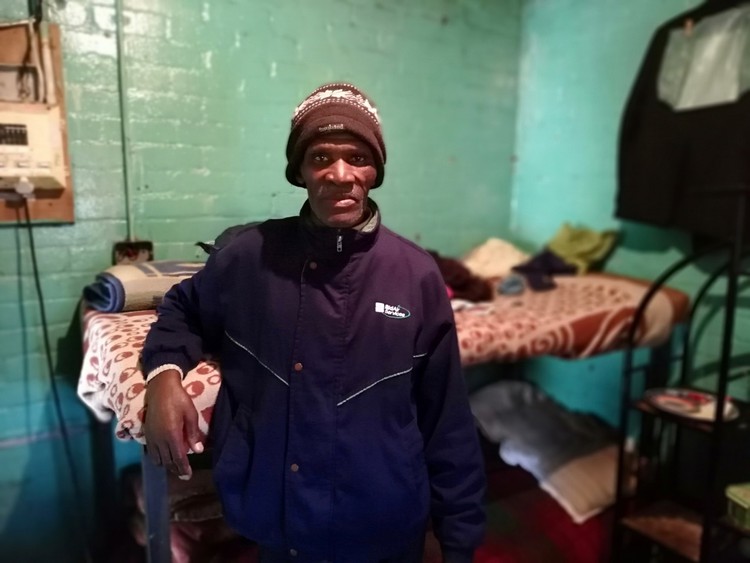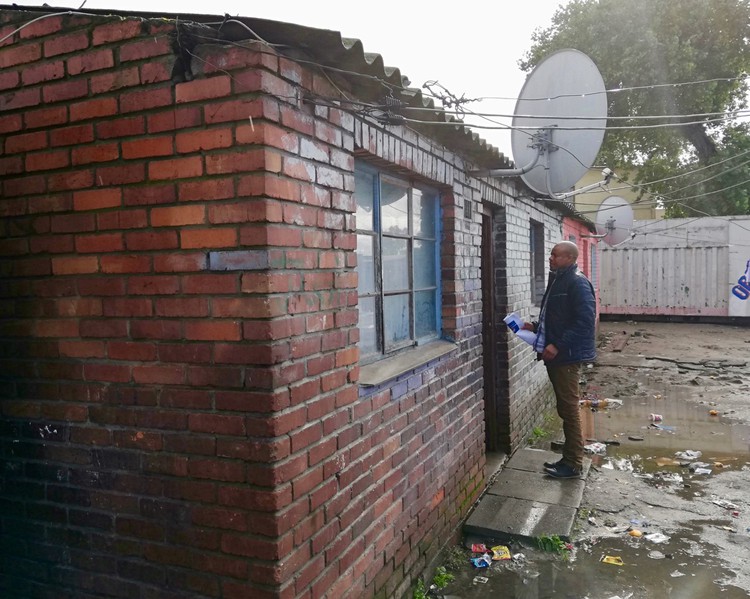Cape Town’s apartheid-era hostel dwellers want family homes
“I have to share a room with my children and grandchildren”
Nozipho Mboniso has been living in a small room with her three children and niece in an apartheid-era hostel in Nyanga for over 25 years. A few streets away in a similar building, 67-year-old Mkhweleli Shoco lives with his wife, Ntombisisi. He has been in the hostel for 36 years. According to the City of Cape Town there are still 104 hostel blocks in Nyanga.
The hostel dwellers say they have been ignored by the City and want improved living conditions. In 2007 a number of them formed the Masiphakame Housing Project in the hope of getting funding for a People’s Housing Project from the City.
Mboniso is one of the project’s members. She shares four rooms with two other families. One room is a kitchen. The ceiling boards in her bedroom are damp and falling down.
“My son [who is 18] has to cover himself with a blanket or look away when I bath,” says Mboniso. She works three days a week as a domestic worker. Her youngest child gets a social grant. Her eldest son started a new job two weeks ago.
“My dream is to find a place where my children do not have to share a room with their mother … But I cannot afford that. All I can do is wait and hope,” said Mboniso.
Shoco and his wife share a single room with their two children and four grandchildren. There are two bunk beds in the room. Two other families stay in their hostel and they share a toilet and a kitchen.
When he first moved to the hostel from the Eastern Cape in the early 1980s, he says, “It was just men staying here. But things change and we have families and these living condition are no longer feasible … I have no privacy and have to share a room with my children and grandchildren. You bath in front of people or they must go out.”
Zekulunge Mantshontsho showed GroundUp the poor condition of Nyanga’s hostels. Photo: Thembela Ntongana
Zekulunge Mantshontsho, who has been living for 30 years in one of the hostels, says members of the Masiphakame project “want to decide what we live in because it is us that will be living in these houses, not the City of Cape Town … [We] should have an input on the houses that we want”.
“We do not want CRU’s [Community Residential Units]. We want the hostel to be made into single houses where people can have ownership over their houses and the privacy that they have not had in years,” said Mantshontsho.
He said all the residents qualified for subsidies, are on the housing list, and want to work with the City.
However Councillor Brett Herron, Mayoral Committee Member for Urban Development, said, “PHP housing cannot be accommodated” because the City wants to “accommodate the maximum number of tenants with minimum or no displacement”.
He said, “Any plan other than council rental units will result in massive displacements which will disadvantage some of the current occupants and result in an unfair outcome.”
“The City plans to transform the hostels into family units that will mainly be allocated to the current hostel tenants,” said Herron. He said the City is in the process of appointing consultants to do the design work. Currently, the final ten units of the iLinge Labahlali Housing Cooperative are being constructed.
© 2018 GroundUp.
This article is licensed under a Creative Commons Attribution-NoDerivatives 4.0 International License.
You may republish this article, so long as you credit the authors and GroundUp, and do not change the text. Please include a link back to the original article.




